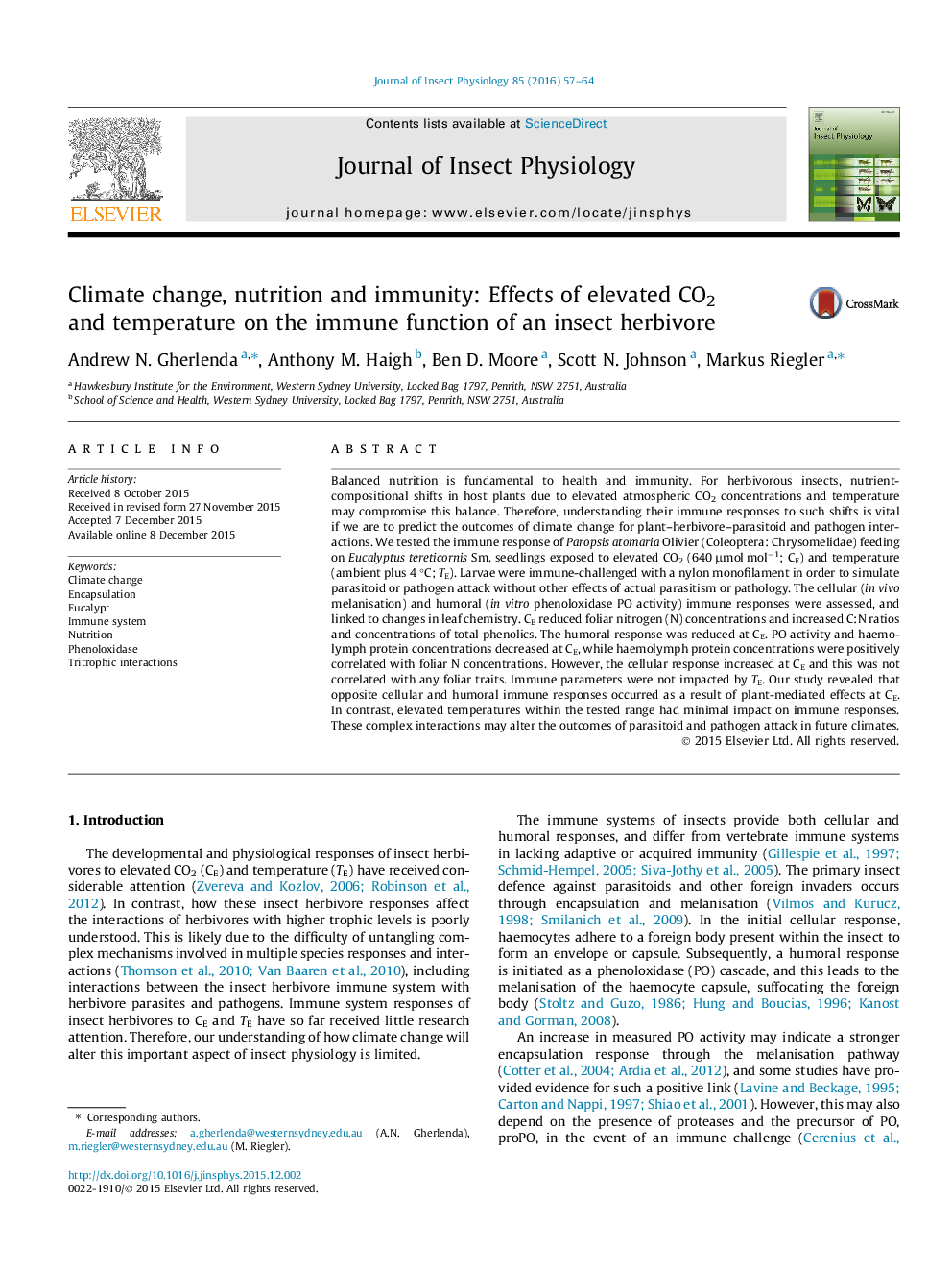| کد مقاله | کد نشریه | سال انتشار | مقاله انگلیسی | نسخه تمام متن |
|---|---|---|---|---|
| 5921409 | 1570985 | 2016 | 8 صفحه PDF | دانلود رایگان |

- We assessed insect herbivore immune response to elevated CO2 and temperature.
- Leaf macronutrient composition changed and impacted haemolymph protein content.
- In vitro phenoloxidase activity decreased at elevated CO2.
- In contrast, melanisation increased independently from nutritional changes.
- Elevated temperature did not affect any measured immune parameter.
Balanced nutrition is fundamental to health and immunity. For herbivorous insects, nutrient-compositional shifts in host plants due to elevated atmospheric CO2 concentrations and temperature may compromise this balance. Therefore, understanding their immune responses to such shifts is vital if we are to predict the outcomes of climate change for plant-herbivore-parasitoid and pathogen interactions. We tested the immune response of Paropsis atomaria Olivier (Coleoptera: Chrysomelidae) feeding on Eucalyptus tereticornis Sm. seedlings exposed to elevated CO2 (640 μmol molâ1; CE) and temperature (ambient plus 4 °C; TE). Larvae were immune-challenged with a nylon monofilament in order to simulate parasitoid or pathogen attack without other effects of actual parasitism or pathology. The cellular (in vivo melanisation) and humoral (in vitro phenoloxidase PO activity) immune responses were assessed, and linked to changes in leaf chemistry. CE reduced foliar nitrogen (N) concentrations and increased C:N ratios and concentrations of total phenolics. The humoral response was reduced at CE. PO activity and haemolymph protein concentrations decreased at CE, while haemolymph protein concentrations were positively correlated with foliar N concentrations. However, the cellular response increased at CE and this was not correlated with any foliar traits. Immune parameters were not impacted by TE. Our study revealed that opposite cellular and humoral immune responses occurred as a result of plant-mediated effects at CE. In contrast, elevated temperatures within the tested range had minimal impact on immune responses. These complex interactions may alter the outcomes of parasitoid and pathogen attack in future climates.
146
Journal: Journal of Insect Physiology - Volume 85, February 2016, Pages 57-64